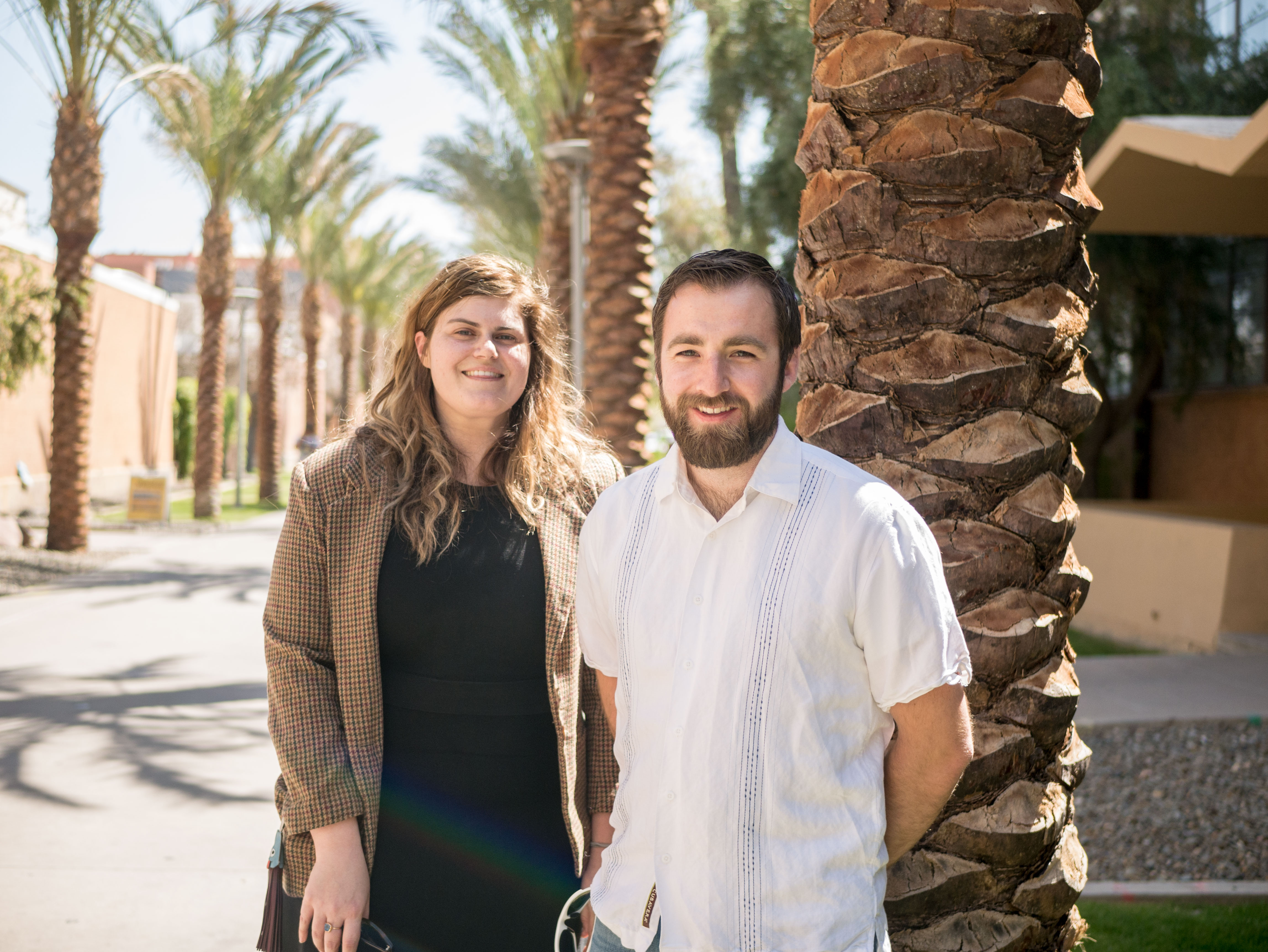ASU study looks at why religious people are trusted more than non-religious people

What is it about religious people that makes them seem more trustworthy? ASU investigated. Photo by John Price via Unsplash
Think of someone you trust. What is it about them that makes them trustworthy? In general, religious people are more trusted than people who are not religious, and researchers in the Department of Psychology at Arizona State University have found explanations for why that is.
Psychology graduate students Jordan Moon and Jaimie Krems, along with Professor of Psychology Adam Cohen, found that the trust of religious people is not based on their beliefs but on how they live their lives. Their findings have been published in the March 28 issue of Psychological Science.
“People trust the religious more, but not for the reasons they might think,” Krems said.
The study examined the reasons why religious people are more trusted than non-religious people. The researchers thought that the trust of religious people might actually be driven by how religious people behaved, not by what they believed.
“We thought religion might serve as a cue to a specific set of behaviors that make a person trustworthy,” Moon said.
The specific set of behaviors comes from an evolutionary biology theory called life history theory. This theory can explain many human behaviors based on individual life experiences. Life history theory includes two main groups of behaviors called strategies. A “fast” life history strategy is used in an unpredictable environment and includes behaviors such as early and frequent mating, aggression and risk-taking. A “slow” life history strategy is used in a stable environment and includes behaviors such as fewer sexual partners, greater parental involvement and investment in education, and less aggression and risk-taking.
The researchers conducted three experiments. The first experiment used fictitious dating profiles that stated whether the person was religious or non-religious. The dating profiles also gave information about the person’s education and dating preferences, such as if they were interested in a committed relationship or casual encounters. Participants rated how much they trusted the person described in the dating profiles.
“Overall, the participants trusted the religious people more,” Moon said, “but we found that the trust ratings were driven by reproductive strategy, such as whether the people in the dating profiles were interested in a committed relationship or still wanted to play the field.”
Psychology graduate students Jordan Moon and Jaimie Krems
The second experiment also used fictitious dating profiles, but this time all the people in the profiles were described as religious. Some of the people in the profiles had slow life history behaviors, and the others had fast life history behaviors. Participants in the experiment again rated how much they trusted the person in the fictitious dating profile. The researchers found that in this context, trust was again driven by behavior.
“This experiment explicitly manipulated the life history strategy, or behaviors, of religious people,” Krems said. “We found that religious people who were promiscuous were less trusted than religious people who expressed interest in a committed relationship.”
The final experiment examined what happened to trust ratings in a professional context instead of a dating profile. The researchers devised fictitious business-oriented social media profiles that specified if the person was a Christian who attended church regularly, was a Muslim who attended mosque regularly or was non-religious. Participant ratings showed that both Christians and Muslims were trusted more than the non-religious professionals.
“People are less interested in the specific beliefs of another person,” Moon said. “They want to know how that person is going to behave, and religion suggests what kind of person they might be.”
The researchers believe that the findings from this study could suggest ways to counteract the distrust of non-religious people, which are a growing segment of the American population.
“The psychology of religion focuses on why people believe what they believe and the effect on their lives,” Cohen said. “We think it is just as important to examine how religious people act and how that affects their lives.”
More Science and technology

Compact X-ray laser lab aims to reveal deep secrets of life, matter and energy
X-rays allow us to view inside the human body to diagnose broken bones and other hidden problems. More recent X-ray advances are…

Apollo lunar samples enable ASU researcher to pinpoint moon’s crystallization timeline
A team of researchers, including Arizona State University geochemist Melanie Barboni, in collaboration with scientists from The…

NASA launches space telescope to chart the sky and millions of galaxies
California’s Vandenberg Space Force Base was the site for Tuesday’s 8:10 p.m. launch of the NASA SPHEREx mission aboard a SpaceX…


